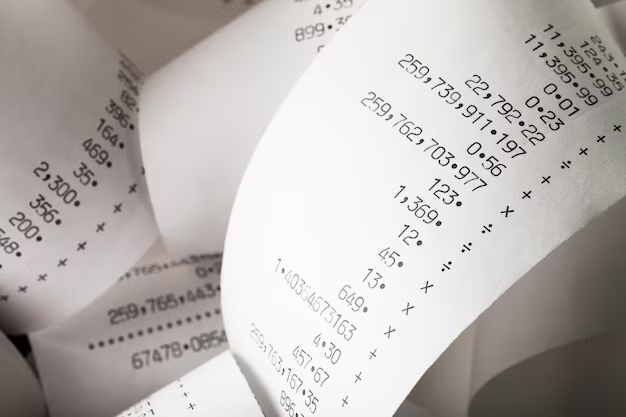Unpacking Sales Tax in New York: What You Need to Know
If you’ve ever made a purchase in New York, you’ve likely encountered the state’s sales tax, a common form of taxation that affects residents and visitors alike. But how much exactly is the sales tax in New York, and what do you need to know to navigate it effectively? Whether you're shopping, planning a business, or just curious, understanding sales tax can help you make informed decisions.
What is Sales Tax, and How Does It Work?
Sales tax is a consumption tax imposed by governments on the sale of goods and services. In New York, sales tax includes both a state component and a local component, allowing for a range of rates that can vary depending on where you are making your purchase.
The Basic Components of New York Sales Tax
State Sales Tax: The New York state sales tax is set at 4%. This applies uniformly across the state, without exception.
Local Sales Tax: Counties and cities within New York have the authority to levy their own sales tax, with rates typically ranging from 3% to 4.875%. This means the total sales tax rate can be between 7% and 8.875%, depending on the locality.
How to Calculate Sales Tax in New York
When making a purchase in New York, calculating the applicable sales tax is usually straightforward:
- Identify the combined tax rate for your specific location (state + local rates).
- Multiply this rate by the price of your taxable goods or services to find the tax amount.
- Add the tax amount to the original price to determine the total cost.
Example Calculation
Imagine you're buying a $100 item in Manhattan, where the total sales tax rate is 8.875%:
- State Tax: $100 x 4% = $4.00
- Local Tax: $100 x 4.875% = $4.88
- Total Sales Tax: $4.00 + $4.88 = $8.88
- Final Price: $100 + $8.88 = $108.88
Sales Tax Exemptions and Special Cases
While most purchases are subject to sales tax, there are several key exemptions and special considerations:
Exemptions in New York
- Clothing and Footwear: Items priced under $110 are exempt from the state sales tax. Some local taxes may still apply unless exempted by the locality.
- Prescription Medications: These are fully exempt from both state and local sales taxes.
- Certain Foods: Generally, most grocery items are not taxed; however, prepared foods can be an exception.
Special Cases
Sales Tax Holidays: Occasionally, New York provides temporary relief on sales tax for specific goods, such as back-to-school supplies. These are typically announced well in advance.
Use Tax: If you purchase an item outside New York but intend to use it within the state, you might owe Use Tax, equivalent to the sales tax, on the item.
Addressing Confusion: Common Questions About New York Sales Tax
Why Do Sales Tax Rates Differ So Much Across New York?
The variation in sales tax rates arises from the autonomy New York’s counties and cities have in setting their own local rates on top of the state’s. This allows for taxation levels that reflect local budgetary needs and policy priorities.
Are Online Purchases Taxed?
Yes, out-of-state retailers selling to New York residents are required to collect sales tax if they exceed certain sales thresholds, simplifying the taxation process for online shoppers and helping maintain fairness for local retailers.
Navigating Sales Tax for Businesses
For businesses, understanding New York's sales tax system is crucial for compliance and strategic planning. Here’s what you need to consider:
Registering for Sales Tax
Businesses must register for a Certificate of Authority, allowing them to collect sales tax. This certificate is mandated before the business can begin operations.
Collecting and Remitting Sales Taxes
- Collection: Businesses collect sales tax at the point of sale based on the location of the sale or delivery.
- Remittance: Taxes collected must be remitted to the New York State Department of Taxation and Finance, typically on a quarterly basis.
Key Takeaways for Consumers and Businesses
Below is a visually distinct summary of practical insights and next steps for dealing with sales tax in New York:
🛒 Consumer Tips
- Check local rates before making big purchases to avoid unexpected costs.
- Take advantage of tax exemptions on clothing under $110.
- Watch for sales tax holidays for temporary relief on specific items.
📊 Business Guidance
- Ensure your business is registered for collecting sales tax.
- Stay informed about local tax rate changes that could impact pricing strategies.
- Maintain accurate records of sales and tax collection to ensure compliance.
Navigating Your Way Forward
Understanding New York sales tax doesn't have to be daunting. Whether you're looking to make everyday purchases more economical or ensure your business is in compliance, knowing how sales tax works, and applying these insights can make a significant impact on your financial decisions. With this knowledge, you're now better prepared to face the nuances of sales tax in New York, turning the complexities into opportunities for smarter spending and seamless business operations.

Related Topics
- Can I Deduct Vehicle Sales Tax On My Federal Return
- Do Gross Sales Include Sales Tax
- Do I Need To Collect Sales Tax For Selling Online
- Do You Pay Sales Tax At The Dealership Or Dmv
- Do You Pay Sales Tax On a House
- Do You Pay Sales Tax When You Buy a House
- Does Alaska Have a Sales Tax
- Does Arizona Have Sales Tax
- Does Canada Have Sales Tax
- Does Florida Have Sales Tax
